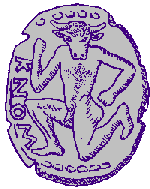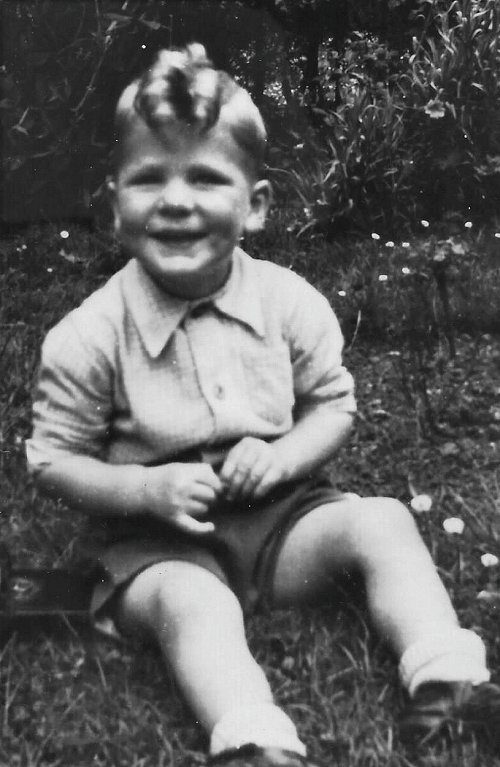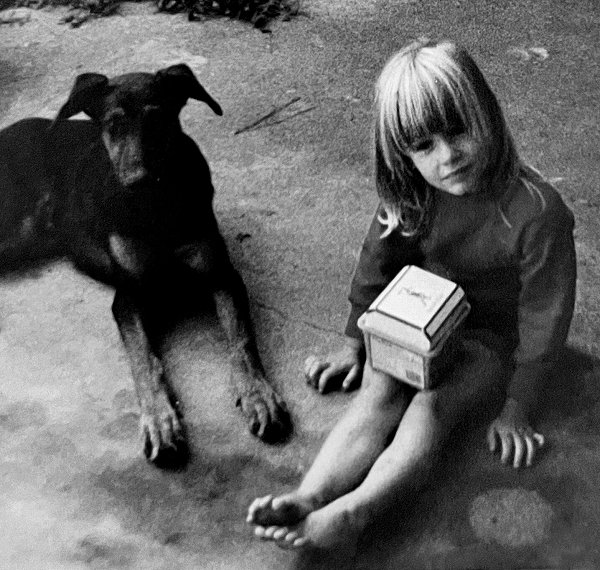Difficult Websites
|
I AM A SOCIOPATH OR
AN ASPY or from another planet Despite
my reservations on Patric Gagne's book SOCIOPATH, she seems
to me to a large extent to be some sort of soulmate.
Four years later I was sent to a snooty and nasty private school with very bad and mostly-unqualified teachers, some of whom had been in the army during WW2. (read more here) At home I lied about my miseries, bullying and punishments. I don't know why I did so. In our anti-emotional, Presbyterian household I couldn't express complicated emotions except in occasional brief tantrums, durring which I threw what was nearest to hand at what was in front of me, wheether it was a person or a wall.... Once I left school, I reverted to the aspergerish behaviour of total frankness – saying things that Normals didn't want to hear. I still do it compulsively. I was a head-banger. I hated sports and communal, competitive activity. I never felt the slightest loyalty to any group. I love solitude and now dislike being with or even near people. But I would place myself somewhere on the autistic spectrum. Do the autistic and sociopathic spectra merge ? If so, where ? And does it matter ? Human behaviour is not a simple matter of labelling like Linnaean taxonomy, but people (especially those with PH.Ds) are constantly categorising, labelling, reducing whole phenomena to words - and in the English language which is notoriously bad at abstract concepts, but very good at describing machinery. 'Person with Antisocial Personality Disorder' is no better a description than 'Sociopath' because it uses the vague and biased word 'disorder'. Is it 'disordered' to see other people as stupid, manipulated, manipulative, greedy, bigoted, deeply dishonest in their attitudes and false emotions – and hence to avoid them and feel no empathy for them ? Is it 'disordered' to much prefer pigs and dogs and horses to humans ? Do hermits have sociopathic tendencies ? If I were to be asked by some silly interviewer to choose between saving a child and saving a tree, I would answer: depends on the child, depends on the tree. And likewise, between dog and tree. But between dog and child, I'd save the dog. As for 'empathy',
I don't think I have ever said "I'm sorry" [for
your loss] when someone I don't know very well told me that their
mother/son/brother had died. Why would I ? It's like saying "I'm
fine" when asked How are you ? I never ask "How are you ?" unless I know that person has been ill. Otherwise, if people want to tell me how they are they can do so without my prompting. I have learned to answer the stupid How are you (or the even worse Ça va ? ) with As well as yesterday, but I don't know about tomorrow. On the other hand I would apologise for knocking into someone or causing unintended embarrassment. I am certainly sorry that the UK has lost 97% of its wildflower meadows since the 1930s. I remember some from the 1940s. Many 'normal' people are bullies in one way or another. Freud was a bully. I would describe bullying as 'sociopathic', but maybe they are entirely 'neurotypical' (what a slippery word!). In which case, I applaud Sociopathic Tendencies, if not their outcomes. The sociopaths who started the invasion of Iraq and the several invasions of Afghanistan, the Israelis who simply confiscated whole Palestinian villages and made their inhabitants refugees are acceptable, even lauded. Is not human civilisation sociopathic ? Abattoirs and zoos appal me. The treatment of most 'pets' appals me. People who cut down trees appal me. People who kill spiders and snakes appal me. The 'breaking-in' of horses appals me. Agri- and pesci-business appal me. I would shout Sociopath! at a homophobe. Are homophobes simply 'wrong-headed' ? Or are they part of a millennia-long sociopathic movement to extirpate difference in sexual-emotional behaviour ? French and British governments spent centuries and actually spilled blood in their attempted erasure of 'inferior' languages such as Occitan, Breton, Welsh, Gaelic and Irish. Those governments were sociopathic. The American prison system (along with most others) is sociopathic to an extreme degree. It seems to me that a person with ingredients or attributes of alleged 'Antisocial Personality Disorder' might well be acting quite rationally. They might be not so much antisocial as anti-conventional. Might honesty and a sense of fairness not be as much 'a good thing' as social acceptability and bonhomie in a world slipping down into catastrophe, while all the Normals are ignoring it and desperately, aggressively, internecinely being Normal ? Some scholars of
the Shoah/Holocaust have decided that its ocurrence defies human
reason, that it can never be understood. Might it not be society itself that is 'sociopathic' ? R.D. Laing ceertainly thought so. Kurt Vonneegut thought so.
ON ANTI-SOCIAL PERSONALITY DISORDER Adapted from a condensed interview of Patric Gagne by David Marchese. New
York Times 23rd February 2024
MY
NOTE ON THE FOLLOWING: DM Sociopaths are modern-day bogeymen, and the word “sociopath” is casually tossed around to describe the worst, most amoral among us. But they are not boogeymen; they are real people and, according to Patric Gagne, widely misunderstood. Gagne wrote “Sociopath,” her buzzy memoir, to try to correct some of those misunderstandings and provide a fuller picture of sociopathy, which is now more frequently referred to as antisocial personality disorder. As a child, Gagne found herself compelled toward violent outbursts in an effort to try to compensate for the emotional apathy that was her default. As she got older, those compulsive behaviors turned into criminal ones like trespassing and theft. Eventually, she discovered that there was a name — that dreaded word — that could be used to describe and explain her experiences of remorselessness, criminality and lack of empathy. The desire to destigmatize her experience and also to help others who may share it (Gagne previously worked as a therapist to those with the disorder and has also written about sociopathy) put Gagne on a path that led to “Sociopath.” “I’m not trying to say, ‘Sometimes we do bad things, but we’re really sweet on the inside,’” says Gagne, who is 48. “I’m saying there is more to this personality type.”
In the book,
you write about stabbing a classmate with a pencil when you were
a kid, and then as you got older trespassing; Specifically, breaking
into people’s homes and stealing cars. You don’t succumb
to those sociopathic compulsions anymore. How did you learn to
control these urges? What does that
redirecting look like in practice? What’s a
recent sociopathic impulse that you had? You write about
your difficulty with understanding other people’s emotions,
feeling apathy and lacking empathy. But you also write about experiencing
love. Why are you innately able to feel love but not, say, empathy?
Are you able
to describe how you’ve built a sense of morality? What advice do
you have for neurotypical people about how best to interact with
someone who identifies as sociopathic? What secrets
do they tell you? So people just
assume that you’re a sympathetic audience? You were a practicing
therapist, and we think of therapists as highly empathic, invested
in the emotions and stories of their clients. So how did you relate
to your clients? In the book,
you describe things like mirroring people back to themselves or
your conscious and intentional manipulation in the moment. Is
that happening now?
QUESTIONS FROM PATRIC GAGNE TO HER NY TIMES INTERVIEWER
I’ll give you two reasons I’m interested: I was sent the book, and I started reading, and the opening involved you as a second grader stabbing a kid in the head with a pencil. I thought, Holy moly, readers will be interested in this! So there was a mercenary quality to my own interest. Then also, there are times when I’ve wondered if the skills that I’ve learned from doing my job over the years are basically just forms of interpersonal manipulation, and I was curious to talk to you as a roundabout way of exploring that question for myself. Where does that
question reach you? Do you manipulate
people in order to execute your job? That sounds
like a justification to me, which means you’re sidestepping
shame or sidestepping guilt. Just so we’re
clear, when I said justification, I wasn’t trying to say
that what you were doing was bad. You’re talking to a sociopath!
I don’t think anything that you’re doing is bad. Yes,
you are manipulating people to a certain extent — to your
point — in the way that I might manipulate somebody in therapy,
but I would never feel the need to justify it, and your justification
came so quickly. That’s why I was like, Hey, what’s
happening that you felt the need to defend your answer? What else? How
much of that dark side of sociopathy can you relate to? And if
you don’t have an easy answer for that, was it comforting
to read about somebody who was open with their experience of being
fully immersed in their darkest impulses and a lot of times carrying
them out? Why? I think
it feels good because it feels free. To do something bad, it’s
like, I don’t give a damn. The consequences — be it
internal guilt or getting thrown in jail — happen after.
In this moment, I’m going to do this because it feels great
to just not care. That is what the sociopath experience is almost
all the time. One piece of advice I would give to anyone who sees
themselves in my description is to find an external philosophy
that works for you. I liked karma. It seemed clean. It seemed
organized. Find that philosophy for yourself, because you’re
not going to get to rely on internal checks and balances. Eventually as
I got older, what I started to realize is that if I can connect
to something that I can internalize naturally, I use that as a
bridge to broaden my empathic response. For example, I’ve
found frequently that a lot of people who exhibit sociopathic
symptoms have strong feelings for pets. That’s a great bridge:
You would feel upset if something happened to this animal that
you care about. Now let’s extend that feeling to someone
close to you that you have a strong relationship with. At first it is
cognitive. Then, over time, that does grow into the emotion. It’s
the understanding of it that leads to the feeling. I’m sure
you’ve had a situation where someone is explaining something
to you, and at first you’re like, I don’t care. [Laughs.] Great.
Now, imagine if that’s your first instinct, but you understand
that you have to be like, Oh, yeah, I understand that I have to
care. That is cognitive empathy. You’re not faking it, but
you’re internalizing it. That’s your first take on something,
and then maybe you get to know the situation better, or you find
something about that situation that you can anchor to, and then
the feeling kicks in. I think my sociopathy is entirely beneficial to me. I see my friends struggling with guilt. On an almost daily basis I think, I’m glad I don’t have that. The psychological characteristics of sociopathy are not inherently bad. Lack of remorse and shame and guilt has been misappropriated to mean this horrible thing, but again, just because I don’t care about you doesn’t mean I want to cause you more pain. I like that I don’t have guilt because I’m making my decisions based on logic, based on truth, as opposed to ought or should. Now, there is a flip side. I don’t have those natural emotional connections to other people, but I’ve never had those. I don’t feel like I’m missing anything. Just because I love differently doesn’t mean my love doesn’t count.
|
![]()




